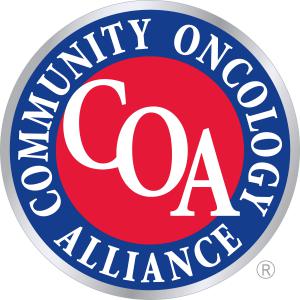Community Oncology Alliance Endorses Radiation Oncology Case Rate Program
ROCR Model Would Stabilize Radiation Oncology Payment and Preserve Patient Access to Radiation Treatments
WASHINGTON, DC, UNITED STATES, June 16, 2025 /EINPresswire.com/ -- The Community Oncology Alliance (COA) board of directors has voted to formally endorse the Radiation Oncology Case Rate (ROCR) Value Based Payment Program Act (H.R. 2120/S. 1031) and is urging Congress to pass the legislation. This bill would change the payment system for radiation oncology (RO) services, stabilizing the field of RO by creating a sustainable payment rate system that moves away from fee-for-service to an episode-based one. The model created under this bill would also create a site-neutral payment framework for RO, creating savings for Medicare and increasing access for patients in rural and underserved areas.“The ROCR program proposes a modernized approach to a sorely outdated reimbursement model,” said Mark Thompson, MD, COA’s medical director of public policy. “Increasing patient access is more important than ever. Under ROCR, I suspect we will see major growth in the accessibility of radiation services for patients.”
Medicare payments for RO services have decreased significantly over the last decade, with Medicare Physician Fee Schedule (MPFS) payments falling by 23 percent from 2013 to 2024. In the face of rising practice costs and inflation, these cuts are unsustainable for practices, especially those in rural or underserved locations. As those practices close, patients lose access to care that is close to home, having to travel further distances for care, or receive it in the more expensive hospital setting.
“I have been treating patients for over two decades, and I have seen patients left bewildered and searching for a new provider because their practice closed due to ever-declining payments,” said Aaron Ambrad, MD, a practicing radiation oncologist at Ironwood Cancer & Research Centers in Scottsdale, AZ, and COA board member. “The ROCR program is a chance to reverse this trend. If we want patients to receive the best treatment possible, we need to take the commonsense step of supporting local, independent community oncology practices.”
Developed by the American Society for Radiation Oncology (ASTRO), the ROCR program changes the current outdated volume-based payment system to a value-based, bundled payment model that will update and stabilize Medicare payments, protect patient access to radiation therapy, and enhance patient outcomes in the process. Each year, payments are updated to account for inflation, and a savings adjustment is applied to keep costs in line. Practices will receive incentive payments to become accredited as a quality measure, and practices will receive additional payments to cover transportation for rural/underserved patients.
“More than half of cancer patients will receive radiation therapy at some point in their treatment plan. It is a critical - but endangered - tool in our oncology toolbox,” said Casey Chollet-Lipscomb, MD, the chief medical officer at Tennessee Oncology and chair of the ASTRO Government Relations Council. “The ROCR program aligns payment for RO services with value-based care goals and emphasizes access to care for all patients. Passing this legislation will ensure patients can continue to access radiation services when and where they need it.”
The Radiation Oncology Case Rate (ROCR) Value Based Payment Program Act was introduced in the House by Reps. Brian Fitzpatrick (R-PA-1), John Joyce (R-PA-13), Jimmy Panetta (D-CA-19), and Paul Tonko (D-NY-20). It was introduced in the Senate by Senators Thom Tillis (R-NC) and Gary Peters (D-MI) and has received strong bipartisan support in both chambers.
###
About the Community Oncology Alliance: The Community Oncology Alliance (COA) is a nonprofit organization dedicated to advocating for independent community oncology practices and, most importantly, the patients they serve. COA is the only organization dedicated solely to community oncology where the majority of Americans with cancer are treated. The mission of COA is to ensure that patients with cancer receive quality, affordable, and accessible cancer care in their own communities. Learn more about COA at www.communityoncology.org.
Drew Lovejoy
Community Oncology Alliance
info@coacancer.org
Legal Disclaimer:
EIN Presswire provides this news content "as is" without warranty of any kind. We do not accept any responsibility or liability for the accuracy, content, images, videos, licenses, completeness, legality, or reliability of the information contained in this article. If you have any complaints or copyright issues related to this article, kindly contact the author above.

